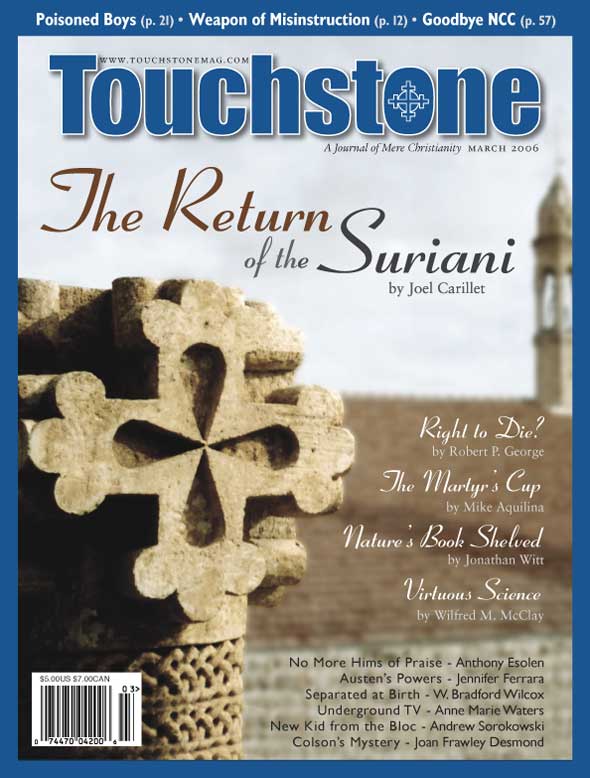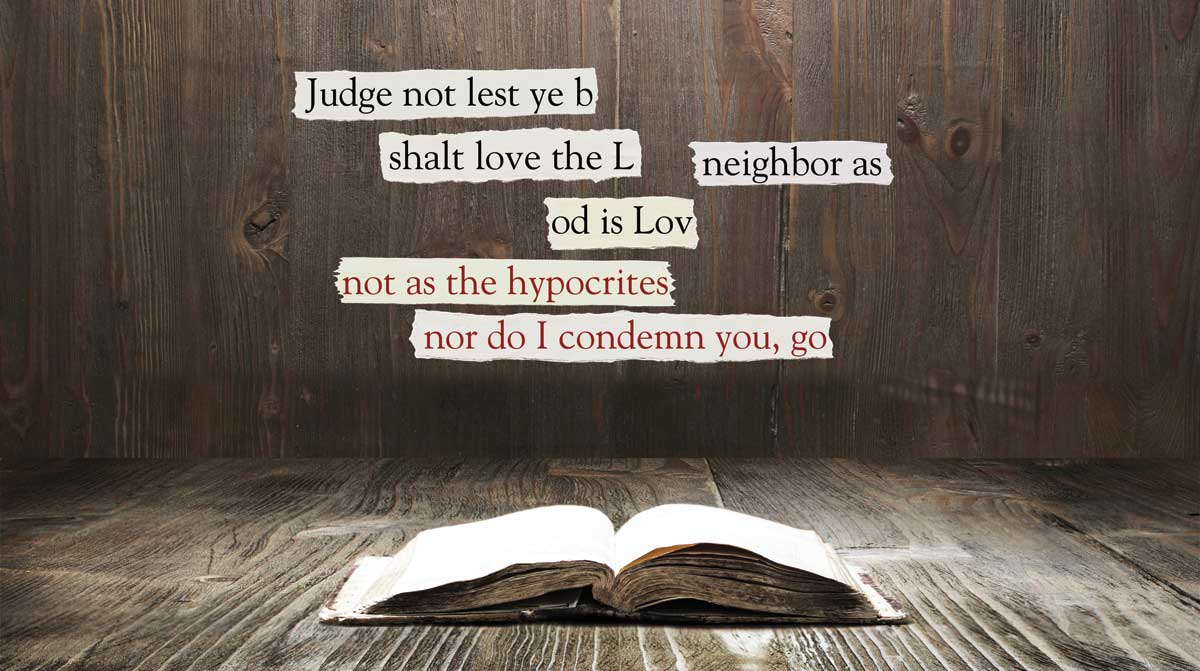Nature’s Book Shelved
Seeing Is Not Always Believing, But There Are Things the Unbeliever Should See
by Jonathan Witt
Does nature provide evidence of a cosmic maker? The answer of the religious skeptic is obvious: No. An essay in Scientific American communicates this view sarcastically, poking fun at a Georgia public-school textbook sticker warning students that evolution is just a theory. Confident that neo-Darwinism provides a thoroughly undirected and unimpeachable account of life from the first organism to the present teeming world, the essayist suggests several alternative stickers for a series of imaginary books. The one in Creationism for Dummies reads, “Religious belief rests on a foundation of faith. Seeking empirical evidence for support of one’s faith-based beliefs therefore could be considered pointless. Or even blasphemous.”
Some consider this argument merely a ploy to get Christianity off Darwinism’s back, but what about Christians who make the same argument? Some prominent ones—like Fr. George Coyne, director of the Vatican Observatory, the astronomical research division of the Catholic Church, and John Haught, Professor of Theology at Georgetown University—insist not only that the natural world provides no such evidence, but that it would be a problem if it did.
Kierkegaard Against Design
Such a view can serve as a coping strategy for those who feel that Darwinism has effectively undermined natural theology—sour grapes writ large: “Evidence for design? Who needs it? Not anyone with real faith.”
But this can’t be the only motivation. Søren Kierkegaard opposed design arguments before Darwin’s On the Origin of Species had ever appeared.
Kierkegaard insisted that one entered Christianity through a leap of faith, not by way of scientific arguments or logical proofs. According to one contemporary philosopher, he believed “that any such proof would undermine our freedom to choose Christianity. . . . If God could be demonstrated like a math problem, then wouldn’t one have to believe in Him by force of logic? Rather than by love, by choice, by gambling one’s very existence with fear and trembling on the Unknown, the very stuff of the human spirit as described throughout the Bible?”
Kierkegaard’s view entered twentieth-century Christian theology through Karl Barth and his criticism of natural theology. Barth claimed the Apostle Paul for his inspiration, but Kierkegaard’s influence is obvious, and through him, the impulse has passed into contemporary Christianity.
According to one Touchstone reader (responding to an earlier article of mine), the notion that nature points clearly to a designer “may actually violate an important notion of theology, which is that God hides.” Paul Thomas continues:
If information were conclusively discovered in the genetic code, for example, then God would have conclusively revealed himself in nature . . . belief in God would become deterministic, a no-brainer forced upon humankind, not an act of free will. God would no longer be a lover who approaches us with a still, small voice, but rather one who forces his love on human beings, turning them into automatons.
Jonathan Witt is a senior fellow and writer in residence at the Discovery Institute in Seattle. He and his wife Amanda have three children, whom they home school.
subscription options
Order
Print/Online Subscription

Get six issues (one year) of Touchstone PLUS full online access including pdf downloads for only $39.95. That's only $3.34 per month!
Order
Online Only
Subscription

Get a one-year full-access subscription to the Touchstone online archives for only $19.95. That's only $1.66 per month!
bulk subscriptions
Order Touchstone subscriptions in bulk and save $10 per sub! Each subscription includes 6 issues of Touchstone plus full online access to touchstonemag.com—including archives, videos, and pdf downloads of recent issues for only $29.95 each! Great for churches or study groups.
Transactions will be processed on a secure server.
more from the online archives

24.6—Nov/Dec 2011
Liberty, Conscience & Autonomy
How the Culture War of the Roaring Twenties Set the Stage for Today’s Catholic & Evangelical Alliance by Barry Hankins
calling all readers
Please Donate
"There are magazines worth reading but few worth saving . . . Touchstone is just such a magazine."
—Alice von Hildebrand
"Here we do not concede one square millimeter of territory to falsehood, folly, contemporary sentimentality, or fashion. We speak the truth, and let God be our judge. . . . Touchstone is the one committedly Christian conservative journal."
—Anthony Esolen, Touchstone senior editor









